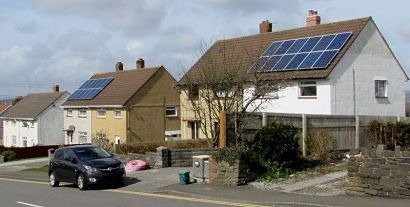
Two pilots in the Greater Manchester Combined Authority and the West Midlands Combined Authority will help drive investment in multiple green projects across key sectors such as energy, housing and transport - essential to delivering on the UK’s climate targets.
The councils will decide how to allocate funding, selecting projects that will benefit their communities. These could include housing retrofit and renewable energy and transport projects, such as installing solar panels, battery storage and deploying green buses – all of which could help significantly cut emissions.
Councils have previously faced barriers to attracting private sector investment in smaller net zero programmes and one-off projects, but today’s (30th November) funding is designed to tackle this so they can secure investment at scale to deliver a range of green initiatives and expand decarbonisation work in the years to come.
By combining multiple green projects across different sectors, rather than requesting funding for one-off, short-term projects, the new Local Net Zero Accelerator Programme will make it easier to secure private investment in a long-term, sustainable way.
A third, separate pilot will be launched in the York and North Yorkshire Combined Authority, with the aim of replicating a similar, successful model in Bristol, which supported around 1,000 jobs. Bristol City Leap established an innovative public-private partnership between Bristol City Council, Ameresco Ltd and Vattenfall Heat UK, which helped secure millions of pounds worth of investment into Bristol’s energy system, including solar, wind, heat networks, heat pumps and energy efficiency measures across the council’s estate.
“The UK is a world leader when it comes to tackling climate change” claimed Minister for Energy Efficiency and Green Finance, Lord Callanan, “but the work we do locally is just as important for cutting emissions and delivering net zero. These pilots will help combined authorities to unlock private sector investment that they can spend on green projects they see fit locally, whether that be retrofitting housing or investing in green public transport networks – all while supporting skilled jobs, building out supply chains and growing our economy.”
The three new schemes will be supported by a centralised finance service. Supported by around £3 million, this will give the pilots access to financial and commercial knowledge to attract private investment in the local programmes.
Meanwhile, the Greater South East Local Net Zero Hub will receive an extra £2 million to ensure independent oversight and the successful delivery of the three pilot schemes. The Net Zero Hubs programme was set up in 2017 and supports Local Authorities to develop net zero projects and attract commercial investment.
The lessons learnt from these pilots will be used to support other combined authorities across England deliver on net zero targets.
“Our £19 million investment is helping local governments explore new ways to fast-track our ambitious Net Zero objectives” added Exchequer Secretary to the Treasury, Gareth Davies. “This initiative is pivotal in mobilising the money we need to transition and boosting green jobs and investments across the country”.
Mayor of the West Midlands and chair of the West Midlands Combined Authority, Andy Street, said that the government’s decision to ask the region to help lead the drive to net zero represents a real vote of confidence in what the region can do and indeed are already doing.
“Whether it’s the strides we’re making to retrofit homes - making them warmer and more energy efficient - or cutting energy bills for local businesses or indeed ensuring our transport network is more sustainable, we’re taking the practical steps on the ground to advance the net zero cause” said Mr Street. “Together, we can help draw in the required public and private finance that will accelerate the rollout and take up of net zero related projects right across the UK as a whole.”
For additional information:

